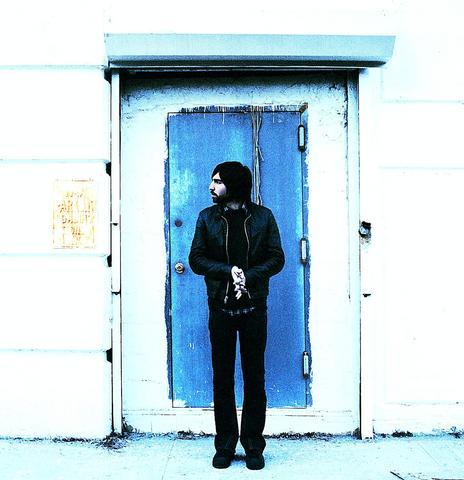The traditionally rock-centric Formoz Festival is for the first time staging "electronica," an umbrella term for musicians who don't play in the now-traditional drum and guitar format -- and DJs.
The label electronica is often used when government officials or promoters want to put on DJs at an event they are sponsoring, but do not want to be associated with the stigma they created: equating dance music with drug use.
The other use of "electronica" is by the musicians and DJs themselves ("artists"), who use the label to distinguish themselves from their more commercial (better paid) club cousins.

PHOTO COURTESY OF SILENT AGREEMENT
Hence, in regard the "Electronic Stage" at this year's festival, organizers are keen to explain that though many of the names that will be appearing are club or rave DJs, they will not be when they play at Formoz Festival. This may sound contradictory.
"It's not really a dance stage, it's indie electronica. In Taiwan there are several kinds of electronica. You've got your dance or techno music and your drugs -- and you've got your independent scene. This stage focuses on the music rather than drugs. It's not a club, it's different from a club," says Formoz Festival founder and Cthonic lead singer Freddy Lin (林旭佐), head of Taiwan Rock Alliance.
It's as if rock musicians, fans and those on the indie scene never took drugs.
So, while Formoz Festival is to be congratulated on the fact that it is putting on dance, ambient, experimental, drum `n' bass and other forms of electronic music -- some of it less commercial than played in most clubs -- it will actually sound and look a lot like a dance party.
Dance music label Silent Agreement is organizing the Electronic Stage and said tonight's show will go on until the early hours. Tomorrow and Sunday will go on late, too. This, translated, means a dance party will take place after the rock bands have finished on the other four stages.
Acts to look forward to tonight include The Album Leaf, Californian Jimmy LaValle's electronic-mood music inspired by Brian Eno and (for his latest album) Iceland. The show is likely to include projection art and live strings. Local heroes Monbaza, 78bpm and popstar-turned-artist DJ Lim Qiong
(

Towering high above Taiwan’s capital city at 508 meters, Taipei 101 dominates the skyline. The earthquake-proof skyscraper of steel and glass has captured the imagination of professional rock climber Alex Honnold for more than a decade. Tomorrow morning, he will climb it in his signature free solo style — without ropes or protective equipment. And Netflix will broadcast it — live. The event’s announcement has drawn both excitement and trepidation, as well as some concerns over the ethical implications of attempting such a high-risk endeavor on live broadcast. Many have questioned Honnold’s desire to continues his free-solo climbs now that he’s a

As Taiwan’s second most populous city, Taichung looms large in the electoral map. Taiwanese political commentators describe it — along with neighboring Changhua County — as Taiwan’s “swing states” (搖擺州), which is a curious direct borrowing from American election terminology. In the early post-Martial Law era, Taichung was referred to as a “desert of democracy” because while the Democratic Progressive Party (DPP) was winning elections in the north and south, Taichung remained staunchly loyal to the Chinese Nationalist Party (KMT). That changed over time, but in both Changhua and Taichung, the DPP still suffers from a “one-term curse,” with the

Jan. 26 to Feb. 1 Nearly 90 years after it was last recorded, the Basay language was taught in a classroom for the first time in September last year. Over the following three months, students learned its sounds along with the customs and folktales of the Ketagalan people, who once spoke it across northern Taiwan. Although each Ketagalan settlement had its own language, Basay functioned as a common trade language. By the late 19th century, it had largely fallen out of daily use as speakers shifted to Hoklo (commonly known as Taiwanese), surviving only in fragments remembered by the elderly. In

William Liu (劉家君) moved to Kaohsiung from Nantou to live with his boyfriend Reg Hong (洪嘉佑). “In Nantou, people do not support gay rights at all and never even talk about it. Living here made me optimistic and made me realize how much I can express myself,” Liu tells the Taipei Times. Hong and his friend Cony Hsieh (謝昀希) are both active in several LGBT groups and organizations in Kaohsiung. They were among the people behind the city’s 16th Pride event in November last year, which gathered over 35,000 people. Along with others, they clearly see Kaohsiung as the nexus of LGBT rights.